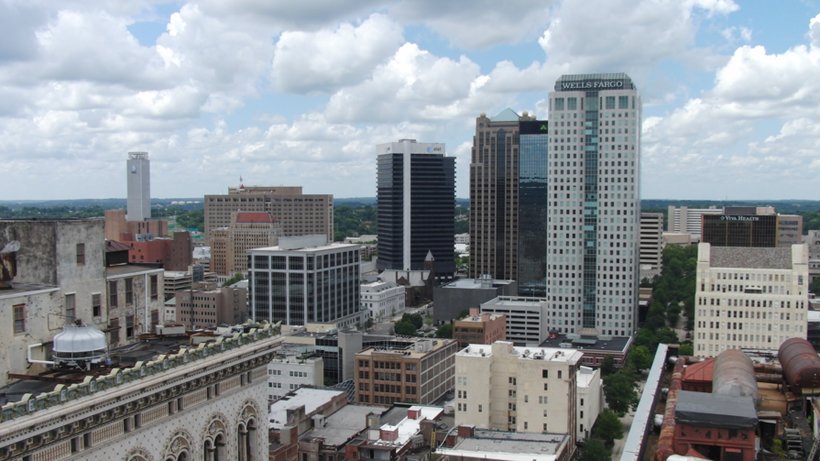
By Move I-20/59 coalition leaders Gail Andrews; Dell & Dixon Brooke, Jr.; Will Brooke; Ralph Cook; George French; Kathryn & Raymond Harbert; Kate Nielsen; Ruffner Page; & Lucy & Temple Tutwiler, III
John Cooper’s recent editorial, “Here’s why we must improve and replace Birmingham’s downtown bridges,” is more of the same “we know best” rhetoric that serves as ALDOT’s rationale for fast tracking misguided projects. While the people who live and work in Birmingham have largely been ignored during the planning process, ALDOT bulldozes forward.
Birmingham is currently riding a wave of economic growth and revitalization of its urban core. Improvements to our highway system have the capacity to complement and augment this growth. And right now we are at a pivotal decision point with one the most critical infrastructure projects in city and state history. Replicating I-20/59’s route through the city center will affect Birmingham’s growth for the better part of a century. Given the potentially significant implications, one must ask:
What are the opportunity costs of enlarging a highway that has been a degrading barrier through our city?
How does widening this highway and reducing access to downtown enhance economic development?
ALDOT cannot answer these questions, nor does the agency seem to want input from Birmingham. It failed to officially include the City of Birmingham as a collaborating agency. City officials have been engaged in discussion around plans for a park slated to go under the highway–an attempt to mitigate its detrimental impacts–but were never included in the decision making process regarding the highway itself. Moreover, their involvement has been tempered by ALDOT’s habit of using other road projects as leverage to gain cooperation. The project has morphed into a much larger and much more invasive project that scarcely resembles their original plan.
Things have significantly changed since ALDOT embarked on its planning process 4 years ago including Region’s Park, RR Park (along with the current flurry of economic development these projects have spurred), Uptown and the soon to be finalized BJCC open air stadium that will be the new home for UAB football. All of these are contributing to the revitalization of Birmingham and are evidence enough that we need to pause with ALDOT’s plan and work in a collaborative effort to define the best way forward for the future of our City.
ALDOT’s proposed plan is also in direct conflict with recent comments by U.S. Department of Transportation Secretary Anthony Foxx to the Transportation Research Board, stating that engineers and planners should adopt “inclusive design” strategies that break down barriers between neighborhoods and help connect communities more effectively. The Birmingham community has made it abundantly clear that what we have now is the worst of all options and ALDOT’s plan is to build a bigger version of the same thing. Other alternatives should be thoroughly considered with the city’s best interest in mind, which ALDOT clearly failed to do. The public information meetings that ALDOT held were largely attended by residents who object to the proposal, evident by ALDOT’s own attendance sheets and transcripts of the meetings. In the Birmingham Business Journal’s recent polls, 80% of respondents said that the bridges hurt development prospects downtown. Yet ALDOT marches forward with intentions to re-build the bridges that will continue to divide the heart of downtown Birmingham for at least another 50 years. If this plan proceeds we will be missing a HUGE opportunity to fix a 40 year old problem and passing it on to our children and grandchildren.
The consideration of alternatives that Mr. Cooper dismissed in his editorial fails to weigh the potential economic benefits of those options. Moreover, other means of public financing of an alternative have not been considered. Direct cost and difficulty should not be the only factors that govern decisions of this magnitude.
While ALDOT’s choice may appear to be the easiest and cheapest option for them, the expense to Birmingham in direct damage and lost opportunity will be astronomical.
We cannot afford to not get this right.









